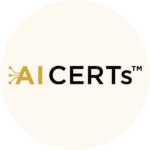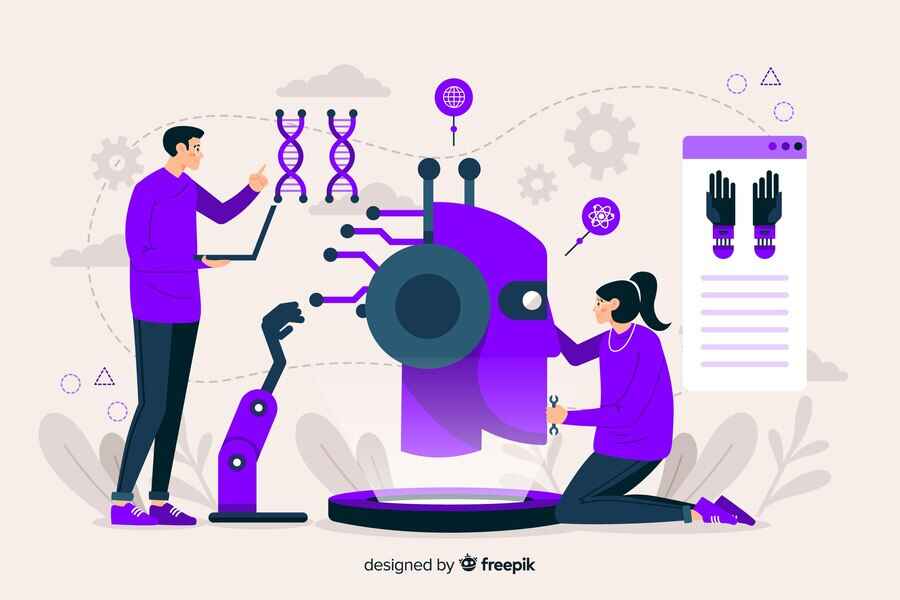
AI CERTS
4 months ago
The Latest AI Research Tools Enhancing Learning in 2024
Artificial Intelligence (AI) continues to revolutionize various sectors, from healthcare to transportation. One of the most impactful areas where AI shines is in education and research. With the advent of advanced AI research tools, learning has become more efficient and tailored to individual needs. This article delves into some of the top AI research tools that are enhancing learning experiences, providing educators and researchers with powerful resources to drive innovation.

TensorFlow: A Game-Changer in AI Research
TensorFlow is one of the most widely used open-source libraries for machine learning (ML) and deep learning (DL). Developed by Google Brain, TensorFlow provides a comprehensive ecosystem for building and deploying ML models. Researchers and educators use TensorFlow to implement complex algorithms with ease.
Key Features:
Flexibility: TensorFlow supports multiple platforms like mobile devices, cloud services, and edge computing.
Visualization: TensorBoard offers robust visualization capabilities for model training metrics.
Scalability: It can handle large-scale data processing tasks efficiently.
For more details on how TensorFlow can enhance your research projects, visit the official TensorFlow website.
PyTorch: Preferred by Researchers
Developed by Facebook's AI Research lab (FAIR), PyTorch has gained popularity due to its dynamic computation graph and ease of use. PyTorch is particularly favored in academic circles for its flexibility and speed in prototyping new ideas.
Key Features:
Dynamic Computation Graphs: Allows modifications on-the-go during runtime.
Extensive Libraries: Includes libraries like TorchVision for computer vision tasks.
Community Support: A large community contributes to numerous tutorials and pre-trained models.
Explore how PyTorch can aid your AI research by visiting the official PyTorch website.
Keras: Simplifying Deep Learning Models
Keras is an open-source software library that provides a Python interface for artificial neural networks. It acts as an interface for the TensorFlow library, making it user-friendly without compromising on performance.
Key Features:
User-Friendly API: Designed to enable fast experimentation with deep neural networks.
Integration: Works seamlessly with other ML frameworks.
Modularity: Offers modularity that simplifies complex DL tasks.
To learn more about Keras and its applications in simplifying AI model creation, check out the official Keras website.
Scikit-learn: Essential Tool for Machine Learning
Scikit-learn is a free software machine learning library for Python programming language. It features various classification, regression, clustering algorithms including support vector machines, random forests, gradient boosting, k-means, etc., accessible via a consistent interface.
Key Features:
Comprehensive Documentation: Extensive documentation helps beginners get started quickly.
Wide Range of Algorithms: Supports almost all machine learning algorithms.
Cross-validation Tools: Provides tools to evaluate model performance effectively.
Discover how Scikit-learn can help streamline your ML processes at the official Scikit-learn website.
OpenCV: Powering Computer Vision Projects
OpenCV (Open Source Computer Vision Library) focuses on real-time computer vision applications. It plays a crucial role in developing image processing techniques which are fundamental parts of modern AI systems used in educational tools such as interactive simulations or augmented reality applications.
Key Features:
Real-Time Operation: Highly optimized for real-time applications.
Image Processing Modules: Comprehensive modules covering different aspects of computer vision.
Cross-platform Support: Available across multiple operating systems including Windows, Linux, Android & Mac OS.
For deeper insights into OpenCV’s capabilities visit the official OpenCV website.

Real-world Applications Enhancing Learning
The integration of these AI research tools into practical applications showcases their potential:
Skin Cancer Diagnosis with TensorFlow
Stanford University developed an algorithm using TensorFlow that matches dermatologists’ accuracy levels when diagnosing skin cancer from images. This breakthrough demonstrates how powerful these tools can be in medical education where students learn through real-life scenarios enhanced by technology (Source).
Tesla’s Self-driving Car Technology Using PyTorch
Tesla uses PyTorch extensively within its Autopilot system enabling vehicles' autonomous navigation through sophisticated ML models trained on vast datasets (Source). Such advancements provide invaluable case studies within automotive engineering courses focused on cutting-edge technologies driving future mobility solutions forward!
Explainable Artificial Intelligence (XAI)
As black-box nature often characterizes many advanced algorithms today understanding model decisions becomes challenging yet crucial especially within academic settings where transparency remains paramount! University Washington provides comprehensive overview XAI aiding researchers educators alike grasp complexities underlying contemporary methodologies better (PDF Overview)!
Conclusion
In conclusion deploying appropriate ai research tools essential maximizing productivity ensuring successful outcomes regardless whether working academic commercial environments alike! From Tensorflow facilitating seamless deployment scalable solutions Pytoch accelerating prototyping innovative concepts there exists myriad options cater specific requirements every project imaginable!